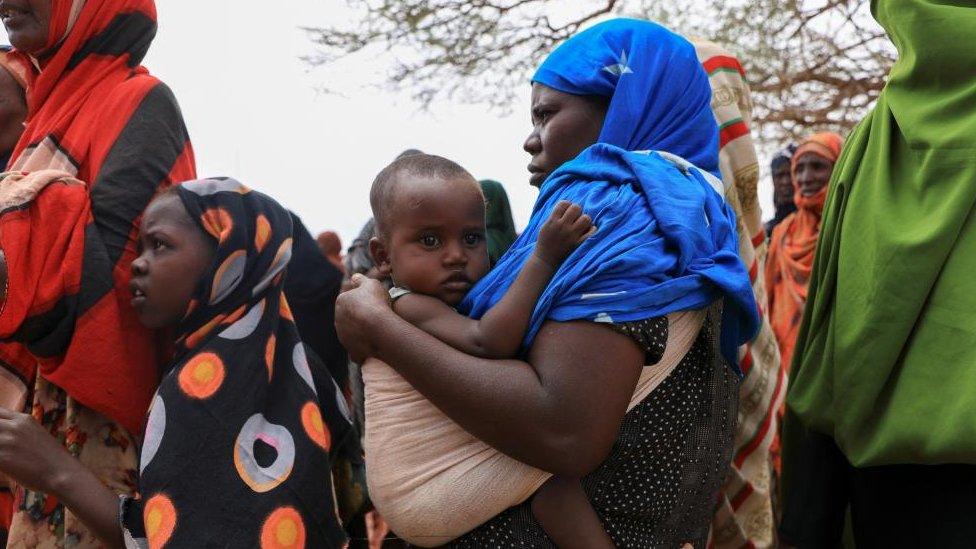UK hits back at World Bank criticism over aid cuts
- Published

Ethiopians queuing to receive food aid at a camp in Gode last year
Development minister Andrew Mitchell has hit back at criticism over aid cuts for the world's poorest, saying the UK was still a "very dominant force".
Mr Mitchell said that the UK was the third-biggest donor to the World Bank's fund for the poorest countries in the world.
The anti-poverty institution had accused the UK of causing "real pain" with recent cuts to foreign aid.
But Mr Mitchell acknowledged cuts may have come at the worst possible time.
The UK halved payments sent to the World Bank's International Development Association fund. It now sends £500m a year.
The government said it was a temporary cut until Britain's public finances were back in shape.
The Bank is hoping that the UK will be "back at higher levels" of funding soon.
Speaking to the 91╚╚▒Č, Axel van Trotsenburg, senior managing director at the World Bank, explained how every dollar counts. He said, "Every dollar that we get saved lives. The way I look at this fund is how you actually save livesÔÇŽ so this caused real pain."
Mr van Trotsenburg, the second-in-command at the Bank, also said that donor contributions had been largely "flat".
The World Bank is under pressure to raise finances for a new crisis response fund, aimed at helping countries respond to higher poverty levels as a result of higher food prices.
Mr van Trotsenburg added: "We want to build on it. And we want the UK back at higher levels."
Three years of crisis have abruptly ended decades of progress in reducing global poverty.
Absolute poverty, where people live on less than $2 (£1.63) a day, affects nearly 100 million more people now than before the pandemic.
Against this backdrop the World Bank says it needs more funds to deal with crisis-afflicted poorer nations as soon as this December.
But as more funds get diverted into refugee spending other aid flows are impacted. Money going to sub-Saharan Africa, for example, are down more than 7% in real terms.
Related topics
- Published9 August 2023